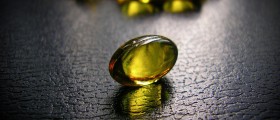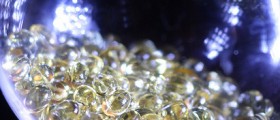
If you are expecting a baby, a vitamin D deficiency can be very serious. How can a vitamin D deficiency affect you, and your baby, during pregnancy? Research is still being conducted into the negative effects of vitamin D deficiency during pregnancy, so the effects of not having enough vitamin D may be even more far reaching than we currently know.
Vitamin D deficiency consequences for mothers
Various studies from different countries including the United States and the Netherlands show that as many as 95 percent (!!!) of all pregnant women have lower vitamin D levels than they should have. Prenatal vitamins don't have a lot of vitamin D, so pregnant women should not rely on a prenatal supplement to get all their Vitamin D; sunlight and sources of vitamin D3 like cod liver oil are better.
Expectant mothers who are deficient in vitamin D are more likely to develop pre-eclampsia and gestational diabetes. Researchers from the University of Pittsburg also found that low vitamin D levels put women at risk of bacterial vaginosis. What is even more interesting is that women with a vitamin D deficiency are more likely to need a cesarean section! The Vitamin D Council reports that those rare women who are not deficient in vitamin D have c-section rates the same as they did 42 years ago, in 1970: five percent. The general c-section rate in the US today is 32 percent.
Vitamin D deficiency and babies
So, what does a vitamin D deficiency do to babies? It is well known that low levels of vitamin D cause "rickets" for children. Vitamin D is essential for bone health, together with calcium. Babies whose mothers were vitamin D deficient during pregnancy are more likely to be born with a low birth weight according to some studies, and dental cavities are also more likely for children who did not get enough vitamin D in the womb. According to some sources, juvenile diabetes rates can be reduced by taking vitamin D. And, newborns who did not get enough vitamin D while in utero were shown to be at an increased risk of developing respiratory infections.
















Your thoughts on this
Loading...